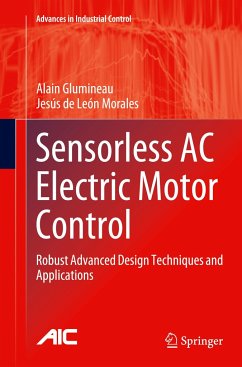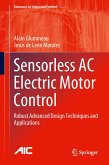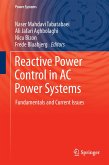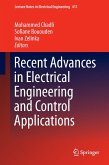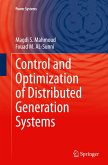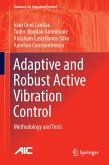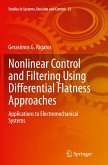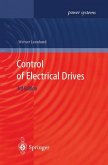This monograph shows the reader how to avoid the burdens of sensor cost, reduced internal physical space, and system complexity in the control of AC motors. Many applications fields-electric vehicles, wind- and wave-energy converters and robotics, among them-will benefit.
Sensorless AC Electric Motor Control describes the elimination of physical sensors and their replacement with observers, i.e., software sensors. Robustness is introduced to overcome problems associated with the unavoidable imperfection of knowledge of machine parameters-resistance, inertia, and so on-encountered in real systems. The details of a large number of speed- and/or position-sensorless ideas for different types of permanent-magnet synchronous motors and induction motors are presented along with several novel observer designs for electrical machines. Control strategies are developed using high-order, sliding-mode and quasi-continuous-sliding-mode techniques and two types of observer-controller schemes based on backstepping and sliding-mode techniques are described. Experimental results validate the performance of these observer and controller configurations with test trajectories of significance in difficult sensorless-AC-machine problems.
Control engineers working with AC motors in a variety of industrial environments will find the space-and-cost-saving ideas detailed in Sensorless AC Electric Motor Control of much interest. Academic researchers and graduate students from electrical, mechanical and control-engineering backgrounds will be able to see how advanced theoretical control can be applied in meaningful real systems.
Sensorless AC Electric Motor Control describes the elimination of physical sensors and their replacement with observers, i.e., software sensors. Robustness is introduced to overcome problems associated with the unavoidable imperfection of knowledge of machine parameters-resistance, inertia, and so on-encountered in real systems. The details of a large number of speed- and/or position-sensorless ideas for different types of permanent-magnet synchronous motors and induction motors are presented along with several novel observer designs for electrical machines. Control strategies are developed using high-order, sliding-mode and quasi-continuous-sliding-mode techniques and two types of observer-controller schemes based on backstepping and sliding-mode techniques are described. Experimental results validate the performance of these observer and controller configurations with test trajectories of significance in difficult sensorless-AC-machine problems.
Control engineers working with AC motors in a variety of industrial environments will find the space-and-cost-saving ideas detailed in Sensorless AC Electric Motor Control of much interest. Academic researchers and graduate students from electrical, mechanical and control-engineering backgrounds will be able to see how advanced theoretical control can be applied in meaningful real systems.

